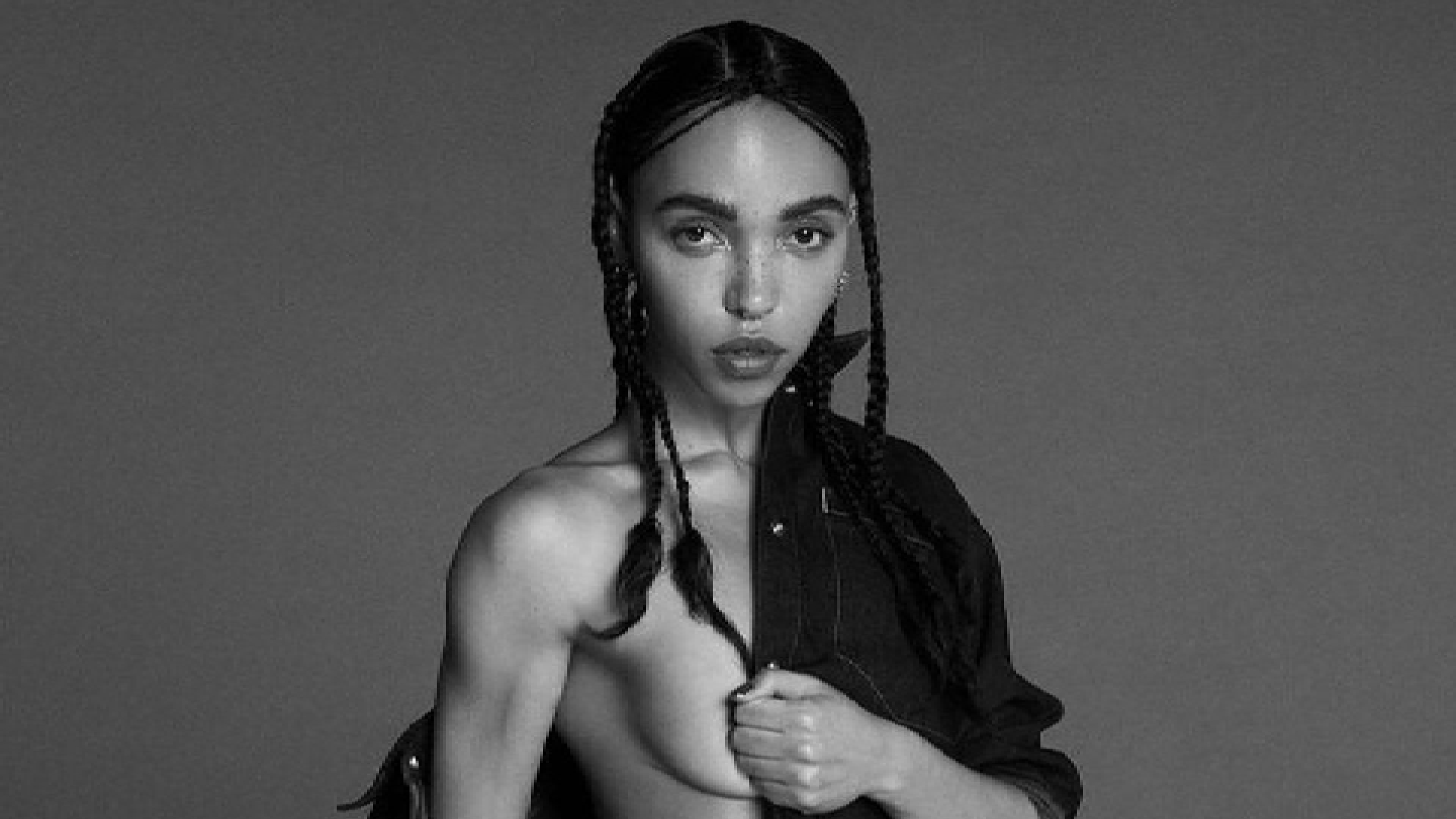
The Advertising Standards Authority (ASA) has banned a Calvin Klein advert featuring singer FKA twigs. In response, she has called them out on their “double standards”, and I have to agree with her.
According to the ASA, the ad depicted the star as a “stereotypical sexual object,” as it showed her with a denim shirt draped halfway around her body “leaving the side of her buttocks and half of one breast exposed.” Meanwhile, the text at the top of the poster reads, “Calvins or nothing.” (For some less controversial adverts, see our best print ads roundup.)
The singer, whose real name is Tahliah Barnett, posted a statement on Instagram after the ruling. It read, alongside a picture of the ad itself: “I do not see the ‘stereotypical sexual object’ that they have labelled me. I see a beautiful strong woman of colour whose incredible body has overcome more pain than you can imagine.
“In light of reviewing other campaigns, past and current, of this nature, I can’t help but feel there are some double standards here". You can see the post below.
Barnett explained that she’s “proud” of her physicality, and said that she holds “the art I create with my vessel to the standards of women like Josephine Baker, Eartha Kitt, and Grace Jones, who broke down barriers of what it looks like to be empowered and harness a unique embodied sensuality.”
She then thanked Calvin Klein and the photographers of the ad, Mert Alaş and Marcus Piggott, and finished, “I will not have my narrative changed.”
She’s been met with an outpouring of support from her peers, and from her followers. Actor and I May Destroy You creator Michaela Coel posted the image on X, formerly known as Twitter, with praise for Barnett.
BraveOpen Unafraid PowerfulIn controlStrongUnashamed. With braids to boot. Leading the shoot. here for it. pic.twitter.com/fSi2iEZYioJanuary 11, 2024
Calvin Klein defended the advert, saying that it was similar to those it had released in the UK for a number of years, and described Barnett as a “confident and empowered woman” who’d worked with the company and had approved the image before its use in the ad. It said that all “conventionally sensitive” body areas were covered, with the singer in a natural, neutral position.
However, after two people complained about the ad campaign, the ASA ultimately ruled that the ad was likely to cause serious offence by objectifying women, saying that the "image's composition placed viewers' focus on the model's body rather than on the clothing being advertised.”
The complaints were also directed at two posters featuring model Kendall Jenner from the same campaign, but these complaints were not upheld by the ASA. This is because it found the posters didn’t focus on Jenner’s body “in a manner that portrayed her as a sexual object,” and the level of nudity didn’t go further than would be expected for a lingerie advert.
For me, banning the ad wasn’t the right move.
Looking at the ad, it does seem unnecessary to ban it – it's not uncommon to see nudity of this level, and Barnett makes some great points in her statement. She approved and was totally happy with the images used, and they weren’t explicit – for me, banning the print ad wasn’t the right move.
I worry that banning relatively innocuous ads like this one could have a knock-on effect in terms of the freedom for creatives to produce exciting advertising campaigns – it feels rather restrictive. Other lingerie ads in the past have pushed the boundaries a lot more than this one – not least some of Calvin Klein's ads.
In 1980, a Calvin Klein ad featuring Brooke Shields – then 15 – sparked controversy, which is entirely understandable. Barnett, however, is a 35-year-old adult woman with her own agency, making the decision to pose for an advertising campaign in which nothing is explicitly shown. Where's the issue?
Other ads we’ve enjoyed recently include Nike’s ad confirming its sponsorship split with iconic golfer Tiger Woods and this cereal brand’s billboards, which are so bad they’re good.







